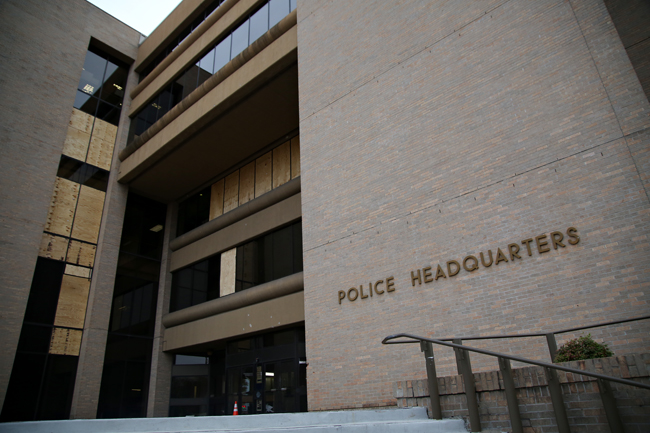Austin Police Department officers could soon be getting body cameras that would allow them to record public interactions while on duty, according to an APD official.
Ely Reyes, APD police technology commander, said APD posted a request for information about body camera specifics on the city website in November. The city has until Dec. 10 to respond to the request, after which APD will analyze the information and determine how to move forward with its plans, Reyes said.
According to Reyes, although public demand for body cameras may have increased because of public shootings and the events in Ferguson, Missouri, APD has tested body cameras for its officers before, in 2011 and 2012, but the technology was still fairly new at that time.
“We’ve had this on our road map for a while — now we’re waiting for the technology to integrate into our systems,” Reyes said.
APD currently has digital cameras in all of its patrol vehicles, but Reyes said what they capture is limited to the view from the front of the car. APD wants cameras that will integrate with the current in-car system and also expand to bikes and pedestrian officers.
“Our goal is to capture as many citizen interactions as possible,” Reyes said.
The cameras would not be turned on the whole time while an officer is on duty — only under certain circumstances, Reyes said.
“We don’t have the ability to store 24/7 data because that takes up a lot of space, and a lot of it is not needed for anything,” Reyes said. “They would be turned on when an officer is interacting with the public or responding to a call.”
Reyes said the department doesn’t yet have an estimate of how much the cameras will cost but said other departments have piloted the cameras. Reyes said the New York Police Department recently spent $60,000 to test the technology with 60 of its officers.
Law professor Jennifer Laurin said body cameras are useful for accurate legal claims, especially when those claims involve use of force by the police.
“Simply wearing body cameras can have the effect of deterring police from engaging in unnecessary or excessive use of force against the public,” Laurin said in an email. “Body cameras can also facilitate better supervision of officers if recordings are regularly audited by supervisors.”
Laurin said there are some privacy concerns raised by the use of body cameras, especially if police officers enter non-public spaces, such as homes or businesses.
“If, for example, officers have discretion as to when cameras are on or off, the monitoring benefits will be largely lost. This is another area where clear internal policies will be essential to protecting civilians’ rights,” Laurin said.
Michael Lauderdale, a social work professor who focuses on criminal justice, said he was generally in favor of body cameras because they provide transparency.
“The use of video cameras in [police] cars has been mainly positive and have served to protect the officers and the public,” Lauderdale said. “I think the experience would be similar for patrol officers. I think the potential benefits outweigh the costs, and some of the issues will be solved only by trial and error.”




















